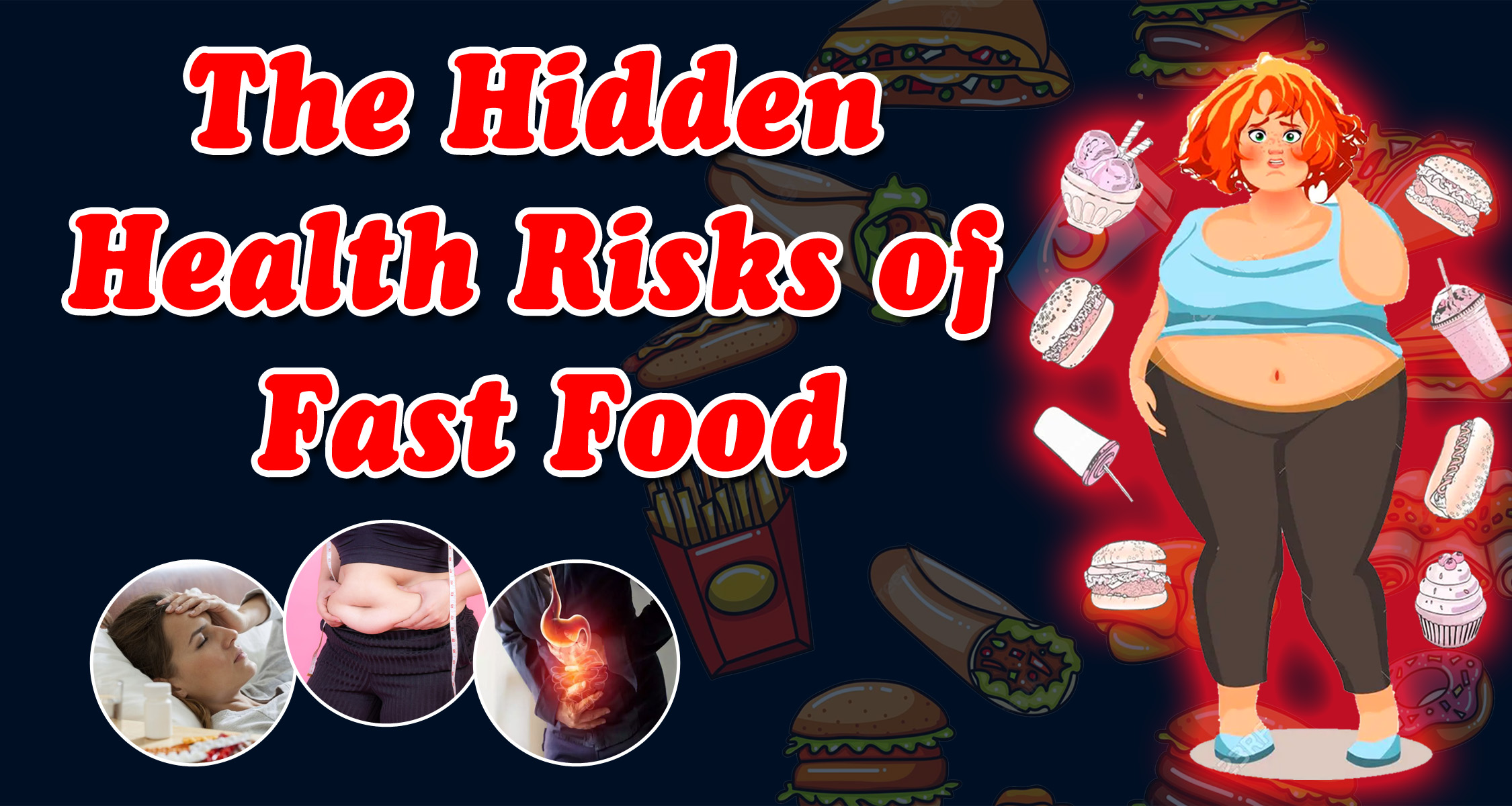In today’s fast-paced world, Most Unhealthy Fast Food has become an integral part of our modern lifestyle. From grabbing a quick bite on the go to indulging in late-night cravings, fast food has become a convenient and often tempting option for many. However, beneath its enticing flavors and convenience, lies a dark truth – the hidden health risks of fast food.
The Hidden Health Risks of Fast Food
1. Introduction
Fast food has become an integral part of modern life due to its convenience and accessibility. However, behind the quick service and tasty meals, there are hidden health risks associated with fast food consumption. In this article, we will explore the detrimental effects that fast food can have on our health, including both physical and mental well-being.
2. The Convenience and Appeal of Fast Food
Fast food restaurants have gained popularity worldwide because of their convenience, affordability, and alluring marketing strategies. They offer a quick solution for busy individuals or those seeking instant gratification. Unfortunately, the ease and attractiveness of fast food often come at a cost to our health.

3. The Impact of Fast Food on Health
3.1 Obesity and Weight Gain
One of the most significant health risks of fast food consumption is the link to obesity and weight gain. Fast food meals are typically high in calories, unhealthy fats, and added sugars. Regularly indulging in such meals can lead to an imbalance in energy intake, causing excess weight gain and an increased risk of obesity-related health conditions.
3.2 Increased Risk of Chronic Diseases
A diet rich in fast food is associated with an increased risk of developing chronic diseases such as cardiovascular disease, type 2 diabetes, and certain types of cancer. These conditions are often attributed to the excessive consumption of unhealthy ingredients like trans fats, refined carbohydrates, and excessive sodium present in fast food meals.
3.3 Nutritional Deficiencies
Fast food is generally low in essential nutrients such as vitamins, minerals, and fiber. By relying on fast food as a primary source of nutrition, individuals may not meet their daily dietary requirements, leading to nutritional deficiencies. This can weaken the immune system, impair growth and development, and increase the susceptibility to various health problems.
3.4 High Sodium Intake
Fast food is notorious for high sodium content. Excessive sodium intake can elevate blood pressure levels, increasing the risk of hypertension and cardiovascular diseases. The hidden presence of sodium in fast food can make it challenging to control one’s salt intake and maintain a healthy balance.

4. Fast Food and Mental Health
The impact of fast food extends beyond physical health; it can also affect mental well-being. Studies have shown a correlation between fast food consumption and an increased risk of mental health disorders such as depression and anxiety. The excessive intake of unhealthy ingredients, combined with the lack of essential nutrients, may contribute to mood swings, decreased cognitive function, and overall poor mental health.
5. Fast Food and Digestive Issues
Fast food meals often lack dietary fiber, which is crucial for proper digestion and bowel regularity. Consuming a diet low in fiber can lead to digestive issues like constipation, bloating, and abdominal discomfort. Additionally, the high fat content in fast food can contribute to gastrointestinal problems such as acid reflux and indigestion.

6. The Role of Fast Food in Poor Eating Habits
Regularly consuming fast food can contribute to the development of poor eating habits. The addictive nature of fast food, combined with its convenience, can lead to cravings and overconsumption. This can create a cycle of unhealthy eating habits, making it challenging to adopt a balanced and nutritious diet.
7. Fast Food and Children’s Health
Fast food has a particularly detrimental impact on children’s health. The aggressive marketing tactics employed by fast food chains target young audiences, often promoting unhealthy food choices. Regular consumption of fast food among children can lead to obesity, poor nutrition, and an increased risk of developing chronic diseases later in life.

8. Making Informed Choices: Healthier Alternatives
While the health risks associated with fast food are concerning, it is possible to make informed choices and opt for healthier alternatives. By planning meals in advance, preparing homemade meals, and opting for whole foods, individuals can reduce their reliance on fast food and improve their overall health. Incorporating fruits, vegetables, lean proteins, and whole grains into the diet can provide essential nutrients and support long-term well-being.
9. Conclusion
Fast food may provide convenience and immediate satisfaction, but its consumption comes with hidden health risks. From obesity and chronic diseases to poor mental health and digestive issues, the consequences of excessive fast food intake are significant. It is essential to prioritize a balanced diet, incorporating whole foods and minimizing reliance on fast food for the sake of our long-term health and well-being.
Please Read more Health & fitness Blog Post

10. Frequently Asked Questions (FAQs)
Q1: Is it okay to eat fast food occasionally?
A1: Consuming fast food occasionally in moderation is generally fine. However, regular and excessive consumption can lead to various health risks.
Q2: Can fast food be part of a healthy diet?
A2: While fast food is not considered healthy, occasional indulgence can be accommodated within an overall balanced diet. It is essential to make informed choices and opt for healthier options whenever possible.
Q3: Are all fast food items unhealthy?
A3: Not all fast food items are equally unhealthy. Some restaurants offer healthier options such as salads, grilled proteins, and whole-grain alternatives. It is crucial to read nutritional information and choose wisely.
Q4: How can I reduce my fast food cravings?
A4: To reduce fast food cravings, ensure you’re consuming a balanced diet with regular meals and snacks. Incorporate a variety of whole foods, stay hydrated, and plan your meals in advance.
Q5: Are there any long-term effects of fast food consumption?
A5: Yes, prolonged fast food consumption can lead to weight gain, increased risk of chronic diseases, nutritional deficiencies, and poor overall health.



